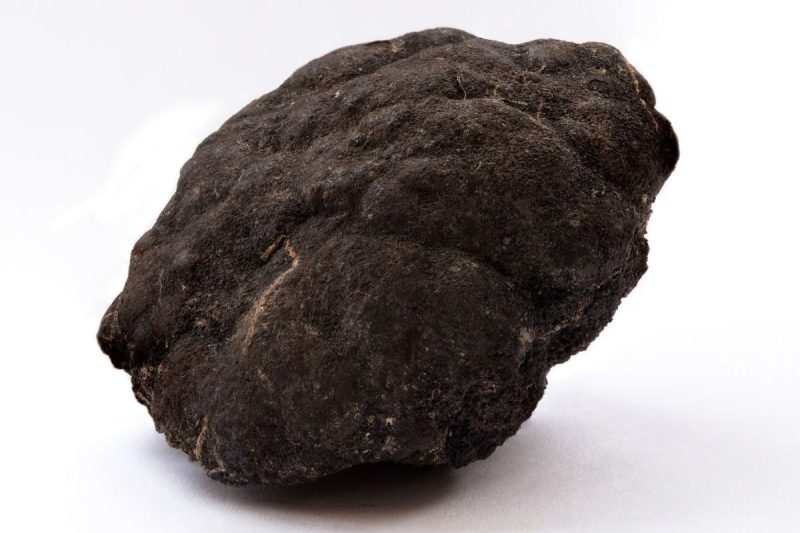Defense manufacturer Lockheed Martin (NYSE:LMT) is in early talks with undersea mining companies to open access to two dormant seabed exploration licenses it has held since the 1980s
The move signals a renewed US push to tap the ocean floor for critical minerals.
The licenses, which cover swaths of the eastern Pacific seabed in international waters, were awarded to Lockheed by US regulators decades ago during a previous wave of interest in deep-sea mining.
Though the projects never progressed to extraction, they are now gaining fresh attention as nations and corporations seek alternative sources of key minerals used in electric vehicles, defense technologies, and clean energy systems.
“We are in early stages of conversations with several companies about giving them access to our licences and allowing them to process those materials,” Frank St. John, Lockheed’s chief operating officer, told the Financial Times.
While St. John declined to quantify the potential value of the deposits, he added that interested parties have “done the homework and determined there is value there.”
Lockheed’s seabed licenses could represent a strategic foothold in a mineral-rich region, containing polymetallic nodules that can hold commercially viable concentrations of key metals.
The timing also coincides with recent executive action from the White House.
USPresident Donald Trump, who returned to office in January, signed an executive order in April asserting US rights to issue mining licenses in international waters and encouraging the stockpiling of seabed metals as strategic resources.
The order bypasses ongoing negotiations at the International Seabed Authority (ISA), the UN agency tasked with regulating deep-sea mining, and instead relies on the 1980 US Deep Seabed Hard Mineral Resources Act as the legal foundation.
It emphasizes the need to “establish the US as a global leader in seabed mineral exploration and development both within and beyond national jurisdiction.” While the US has not ratified the UN Convention on the Law of the Sea — the treaty from which the ISA derives its authority — it has signed a 1994 agreement recognizing the treaty’s seabed provisions and operates its own permitting system through the National Oceanic and Atmospheric Administration.
Lockheed said it welcomes the renewed policy attention. “We believe the US has the opportunity to develop a gold standard for commercial recovery of nodules in an environmentally responsible manner.”
Court upholds TMC disclosures on deep-dea mining risks
Lockheed is not alone in navigating the legal uncertainties surrounding seabed mining.
The Metals Company (TMC) (NASDAQ:TMC), a deep-sea mining startup, recently survived a shareholder lawsuit alleging it had misled investors about the environmental impacts and financial backing of its operations.
US District Judge Eric Komitee dismissed the claims, ruling that the company’s comparisons to conventional mining methods were not misleading, even if deep-sea mining still carries environmental risks.
“It is eminently possible that (1) deep-sea mining causes meaningful environmental harm, and yet (2) such harm is significantly less than the harm caused by existing methods,” the judge wrote.
TMC had disclosed in filings that deep-sea mining could result in damage and that the regulatory path remained uncertain. Its legal win may encourage others — like Lockheed — to proceed more openly with their seabed plans, albeit cautiously.
Deep-sea mining industry cautiously awakens
The growing pursuit of potentially extracting resources from the world’s oceans comes at a critical juncture for the seabed-mining industry. For decades, a de facto moratorium on mining in international waters has been in place due to regulatory uncertainty and environmental concerns.
The ISA has issued more than 30 exploratory permits, but has yet to finalize commercial extraction rules. That delay has prompted frustration from some parties, while drawing calls from others for a pause or outright ban.
Currently, the ISA is holding key assemblies in Jamaica to hash out the long-awaited mining code to regulate commercial activity on the ocean floor with provisions for environmental safeguards, royalties, and tax obligations.
But a growing number of countries — 37 at last count — have pushed for a precautionary pause, citing risks to deep-sea ecosystems that remain largely uncharted. Scientists warn that mining these habitats could cause irreversible damage.
In 2023, Lockheed appeared to step back from the sector by selling two UK-sponsored exploration licenses in the Pacific, a move interpreted by analysts as signaling reduced confidence in deep-sea mining.
However, its retained US licenses suggest it never fully exited the space.
The Trump administration’s executive order marks the most assertive US step yet to undermine the ISA’s multilateral approach, raising fears among diplomats that the agency may lose legitimacy.
China, which has also invested heavily in seabed mining, responded sharply to the move.
“The US authorization violates international law and harms the overall interests of the international community,” Chinese foreign ministry spokesman Guo Jiakun said earlier this year.
Securities Disclosure: I, Giann Liguid, hold no direct investment interest in any company mentioned in this article.

